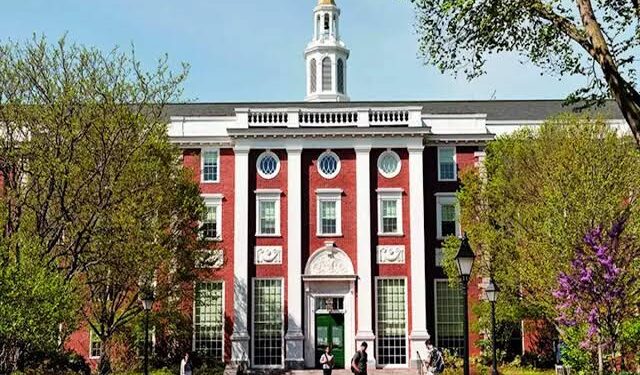In a sweeping move with global implications, Harvard University’s certification under the U.S. Student and Exchange Visitor Program (SEVP) has been revoked by the Department of Homeland Security (DHS), barring the university from admitting or retaining international students on F-1 and J-1 visas for the 2025–2026 academic year.
The decision, outlined in a letter dated May 22 from DHS Secretary Kristi Noem, cites Harvard’s alleged failure to comply with federal reporting requirements, as well as its campus climate, which she described as “hostile to Jewish students,” sympathetic to pro-Hamas ideologies, and driven by “racist” diversity, equity, and inclusion (DEI) policies.
“You have lost this privilege,” Noem wrote, emphasizing that Harvard’s refusal to provide key data and its “unsafe campus environment” led to the decertification.
The immediate impact is severe:
-
Harvard is now prohibited from enrolling new international students under F-1 or J-1 status.
-
Current international students must transfer to other institutions to maintain their visa status.
-
All admissions under these visa categories are suspended until further notice.
Despite the revocation, DHS has given Harvard a 72-hour window to comply with six specific demands. If fulfilled, SEVP certification could be reinstated in time for the 2025–26 academic year. The conditions include:
-
All records (electronic and audiovisual) of alleged “illegal activity” by nonimmigrant students in the past five years.
-
All documentation of “dangerous or violent activity” involving such students on or off campus.
-
Records of threats made by nonimmigrant students against peers or faculty.
-
Evidence of any incidents where students deprived others of their rights.
-
All disciplinary records of nonimmigrant students since 2020.
-
Audio/video evidence of campus protest activity involving international students over the past five years.
Noem warned that any false or misleading submissions would invite criminal prosecution under federal law.
The decision could affect over 5,000 international students, including 788 Indian nationals, enrolled at Harvard. Legal experts and education advocates are calling the move unprecedented and politically charged, as it ties immigration enforcement to perceived ideological misconduct on campus.
Meanwhile, universities across the U.S. are closely watching how Harvard responds, fearing similar scrutiny amid rising tensions over campus protests, free speech, and immigration.





























